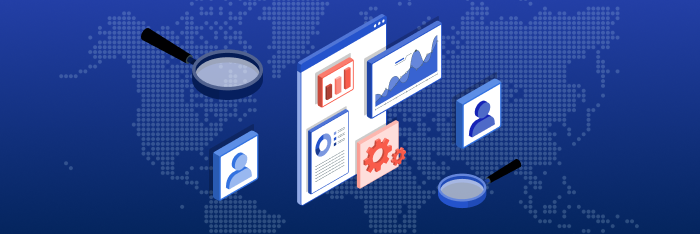Most In-Demand Services of Data Strategy Consultants






What Do Data Strategy Consultants Do?
Data strategy consultants help improve data management practices across the entire organization. They formulate silo-elimination tactics that enhance data visibility, sharing, and combination while introducing data capture methods like analytics and tracking. Through such programs, they help a company harness the power of big data as a decision-making tool. Moreover, they ensure such data efforts are pursued within the law all while preserving data-owner privacy.
Data strategy experts also help develop a robust data management vision that aligns with core business objectives. Such a vision illustrates the organizing, analyzing, governing, and deployment of a company’s information assets to achieve an enhanced competitive advantage. They also establish systems and norms that promote data-driven innovation while instilling an effective and sustainable data culture.
Hire Data Strategy Consultants, Easier than Ever Before
Frequently Asked Questions (FAQs)
Why Hire Data Strategy Consultants?

Hiring data strategy consultants helps a company manage and monetize the torrents of data that are characteristic of any modern business. They support a company in transitioning to data-driven processes across different units, including HR, manufacturing, transport and logistics, and product development. When brought on, a data expert aligns and prioritizes a company’s data and analytics programs with business priorities and goals. With the right priorities in place, they assist a company in developing digital-first practices that help utilize both structured and unstructured data for enhanced capabilities.

Data strategy consultants offer crucial insights in the following areas:
Improve Data Visibility and Accessibility
Big data experts provide enhanced data visibility through integrated analytics and data collection technologies like smart sensors. They support a company in establishing technical conventions that make it easier to access both structured and unstructured data. In doing so, they help provide clear data channels that can easily be directed towards data processing capabilities like business intelligence (BI) systems. With enhanced data visibility and accessibility, a data strategy consultant helps a company discover the data that can help it meet its goals.
Integrate Data Sources and Eliminate Silos
Unstructured and uncombined data has little commercial value. Data strategy consultants introduce systems and structures that integrate data sources to create a stream of valuable, multidimensional data. They also assist a company in eliminating data silos that act as barriers to data combination and monetization. Companies working with data experts realize higher quality data that, when processed, yield exceptional insights for business growth.
Streamline Data Collection and Sharing
Data collection and sharing are crucial organization-wide activities. Data strategy specialists create a data strategy that streamlines these processes, making data collection, and sharing accessible at every level of seniority in the company. Through this enhanced data capability, company departments can operate based on a shared data source, enabling them to work in tandem rather than in opposition. Through a streamlined data collection and sharing strategy, a company can realize a more integrated approach to data utilization.
Set Clear Guidelines and Objectives for Data Management
Data strategy specialists support a company in creating a set of data guidelines and objectives that span issues like data silos, data formats, data security, data sharing rules, and data privacy. They help a company understand the implications of undertaking data-focused strategies and what structures to put in place to manage these strategies. Additionally, data specialists champion both vertical and horizontal stakeholder buy-in so the data strategy can achieve critical adoption across the organization.
Tips on How to Hire Data Strategy Consultants
Hiring the best data strategy consultant for your project requires mapping your data strategy needs with the right data specialist. If you need a data strategy for a new SaaS product, you are launching, for example, working with a data strategist with SaaS experience is crucial. Since all the data experts in your selection panel have extensive experience designing and deploying data strategies, drilling down to the specifics will help you zero in on your final selection. In this case, you need to know which details to consider.

In your data strategy specialist panel, consider filtering your options based on the specific skills and capabilities outlined below:
Executive-level Communication Skills
Implementing a comprehensive data strategy is a sweeping process that affects all aspects of a business, a factor that makes it a delicate issue to handle. The best data strategists understand this and have well-established executive-level communication skills. They know how to package, present, and sell a data strategy to senior management and get substantial buy-in. Such communication skills also prove invaluable when obtaining insights from various senior parties during the discovery phase of the data strategy development process.
Industry-specific Data Experience
All industries have data, but different industries generate different data, which merits a different strategic approach. For instance, a manufacturing entity would have vastly different data strategy needs as compared to an e-commerce entity. As such, the data strategy consultant you pick should have industry-specific data experience that gives them a contextual understanding of your data strategy needs. It also helps if the consultant has a general background in your industry, as this would give them additional context.
Data Technology Tools Experience
Developing a data strategy often involves identifying and recommending data collection, storage, processing, and sharing tools. The best data strategy specialists have extensive experience and domain knowledge around data tools like Amazon Web Services (AWS), Microsoft Azure, Microsoft Business Intelligence, Tableau, Hadoop, R, and others. Through this knowledge, they can offer insightful recommendations on what tools can best support your data strategy objectives.
Problem-solving Skills
Using excellent problem-solving skills, the best data strategy specialists solve problems related to formulating an effective data strategy. They use these skills to analyze issues and uncover strategies around identifying, storing, provisioning, processing, and governing data. Some of the problems they solve during the strategy formulation process include unifying disparate sources of data, establishing data sharing conventions between different data use cases (e.g., customer care and manufacturing), and limiting data uses in line with privacy laws and permission systems.
Digital Trends Awareness
Data production and utilization are growing at an unprecedented speed. Since this growth is non-linear and happening at different rates across different industries, it is essential to work with a consultant with relevant digital awareness knowledge. For instance, a small bank may be better served by a consultant with an awareness of digital trends in the fintech field. By working with a consultant with relevant trend awareness, a company can avoid the risk of implementing a digital strategy that is soon outdated due to missed emerging digital data strategy trends.
Collaborative Team Player
Formulating an effective digital strategy involves bringing together resources from different departments. For this to work, you need a data strategy consultant with experience navigating various departments to establish a unified data strategy. These departments might be finance, production, HR, or procurement. By creating a team-oriented approach to the data strategy, the best data specialist fosters a unified cross-departmental data management ecosystem, an essential ingredient for any data strategy to succeed.







